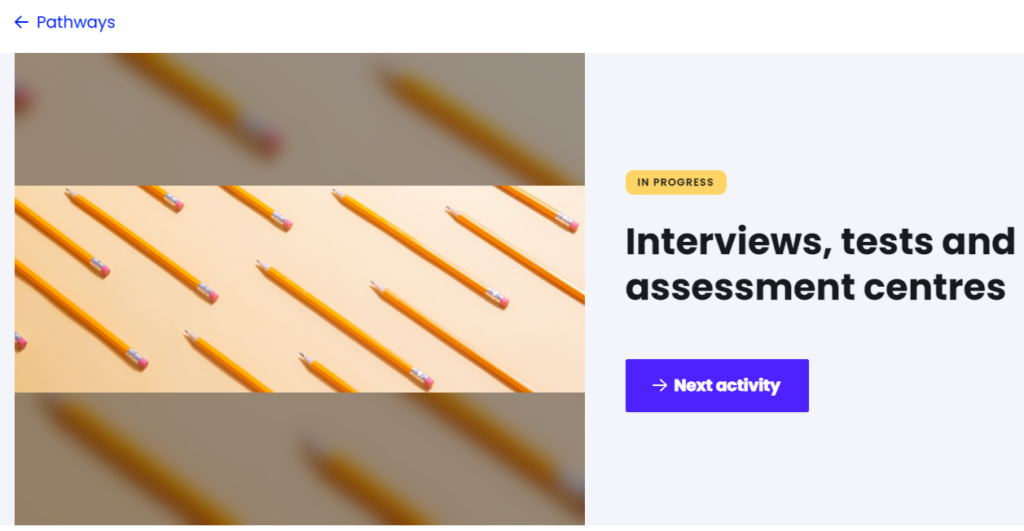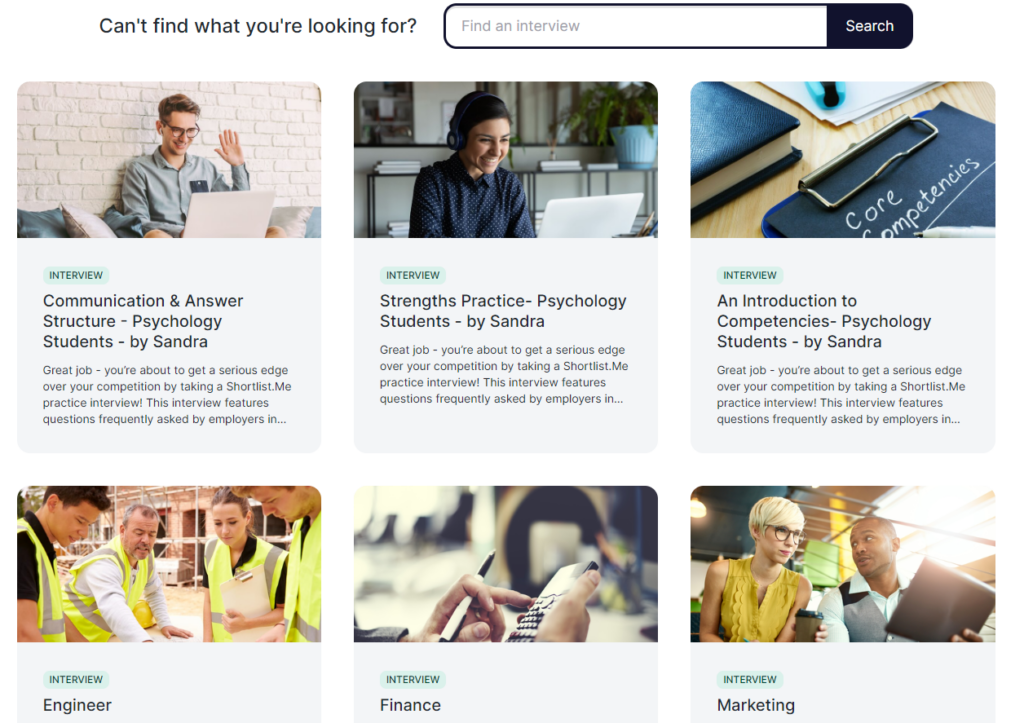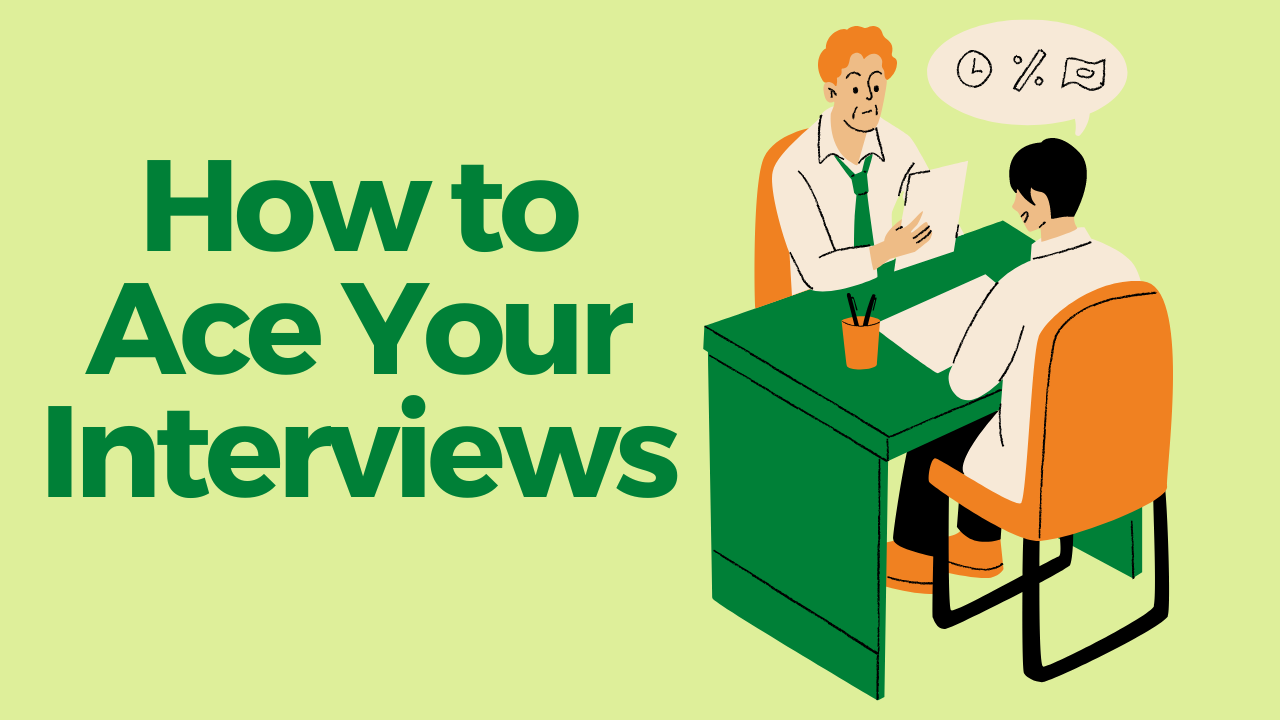In previous articles, I have covered how the university’s careers service can support you as you create CVs and write cover letters. Now it is time to move on to later parts of the application process: interviews, tests and assessment centres.
There is a lot to get through so this article will focus on the interview stage and other articles on tests and assessment centres respectively.

Interviews
A crucial step of the application process, the interview is what gives an employer a more accurate picture of who you are, what you can do, and how well you might work with the team.
Interviews are some of the most nerve-racking things you can do, regardless of your age. But there are ways you can prepare yourself for them.
There is a range of questions you may be asked:
Motivational questions (e.g. ‘Why do you want to work for us?’)
Employer-focused questions (e.g. ‘What do you know about us?’)
CV and career aspiration questions (e.g. ‘Tell me about your internship with…’ or ‘What is your career goal?’)
Hypothetical questions (e.g. ‘What would you do if X happened?’)
Competency or values-based questions. These might ask for previous examples of when you used skills or demonstrated values (e.g. ‘Give me an example of when you worked in a team to solve a problem’ or ‘Tell me about a time when you took pride in your work’)
Strength-based questions. These focus on what you like doing and what you are good at (e.g. ‘What motivates you?’ or ‘Do you prefer to work in a team or by yourself?’).
Two of best things to do are to practice and to prepare:
Practice
Interviews are a daunting task but the more you do, the better you will get and the more confident you will come across. Even an unsuccessful interview is successful in other ways.
Prepare
Hopefully, during your initial application, you researched the company. Now that you’ve secured an interview, you need to do more research. Get an understanding of what the company does, and what their policies are and make sure you understand what you would be doing in the job you are applying for. You might even be told who will be interviewing you, so try to look them up and what their roles are!
Practice answers to typical interview questions as well as searching online for previous interview questions that may have been asked by the company. A great methodology to stick to when answering interview questions is STAR (Situation Task Analysis Response). This structure is helpful as it allows you to use your past experiences to help portray what makes you suitable for the role. It is recommended that you try and write out answers to a range of questions using the STAR format, but use different scenarios for each, just to get practice with it as well as a range of information to pull from when asked a question during your interview.
With the pandemic, more and more interviews are being conducted online. It is easier to set up a zoom or teams than organise travel and book a room for an in-person interview. That is why it is a great idea to get as much practise as you can with this style of interview. The MyCareer’s page has tons of resources to help with this, but there is one I recommend checking out: Shortlist.me.
Shortlist.me is a practice video interview tool used by actual graduate recruiters to give an accurate view of what a video interview is like as well as AI-generated reports and your answers themselves to reflect on. You can participate in a range of video interviews for different fields as well as some strength-based interviews and employer-specific ones for NHS Digital, AstraZeneca and law firm, Womble Bond Dickinson.
As you can see there is a broad range of mock interviews you can attempt:

After completing one of these interviews, which asked six questions, I received the following feedback:

As you can see, it gives a useful breakdown of metrics like speech rate, filler words and time used. In addition to this feedback, you can look back at each of your answers and reflect on how you performed. Just attempting the questions is a great way to practice!
Also, be sure to remember that interviews are there to help you decide as well! Be sure to ask your own questions to figure out if you are the right person for this role. You don’t want to be stuck in a role that isn’t right for you.

